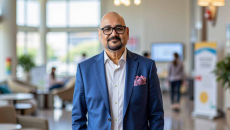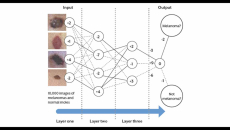Artificial Intelligence
SPONSORED
Dr. Alfredo Almerares, clinical executive manager at InterSystems, believes the value generative AI provides in improving patient and clinician experiences will lead to greater digital health technology deployment across Latin America.
The artificial intelligence agent texts patients to schedule their follow-ups – presenting options for provider availability, booking their choice and then confirming appointment details.
Transform Health Partners' Dr. Peter Billing and Medtronic's George Murgatroyd explain how automated, post-operative videos edited by AI not only enable physicians to enhance patient engagement but can also improve the training of surgeons worldwide.
SPONSORED
A pilot study will collect data from smartphones and wearable technologies to predict opioid relapse.
The radiologist shortage and increasing imaging demand are two intertwined challenges that can benefit from large language models. Penn Medicine is showing how.
They see artificial intelligence as a core enabler of financial performance and patient-centric care, a new survey shows, and also expect it to become fundamental to how health systems think about care quality, patient outcomes and market competitiveness.
SPONSORED
Endoscopy plays a critical role in early cancer detection and avoiding open surgery. But a combination of overburdened healthcare staff and fragmented workflows means endoscopy departments need greater interoperability to improve patient outcomes.
The Indiana health system has seen an 86% drop in time to complete notes, with after-hours documentation time plunging by 34%. And documentation turnaround has improved by 87%. Says one provider: "I was sold after just one patient. It was such a relief."
The University of Toledo is building and piloting AI models to assist in clinical decision support and to accurately answer patients' and clinicians' questions. Dr. R. Ryan Sadeghian, CMIO and a pediatrician, explains.
These networks started impacting healthcare in the last 20 years, but it's only today that reliable prospective studies are convincing clinicians to use these artificial intelligence tools in their daily work. A Mayo Clinic researcher offers some insights into their applications and use.












